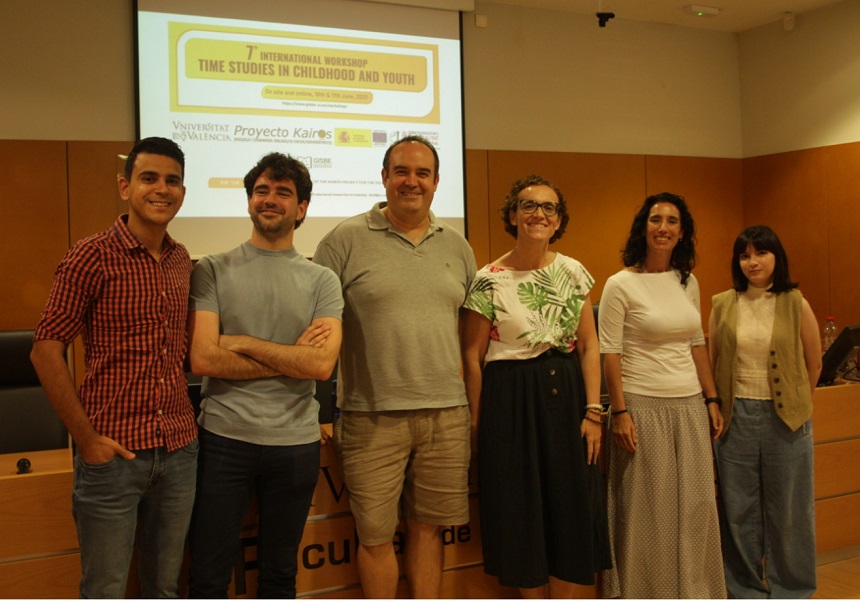Digital reading habits reduce reading motivation from Grade 5 onwards
- Marketing and Communication Service
- Scientific Culture and Innovation Unit
- November 13th, 2025

A study conducted by the Interdisciplinary Research Structure (ERI) for Reading of the University of Valencia concludes that academic digital reading habits in Grade 5 of primary education negatively predict reading motivation in Grade 6. The findings also highlight that digital reading habits do not cause poorer reading comprehension. The study, published in Developmental Psychology, one of the flagship journals of the American Psychological Association, was based on data from 908 primary school students.
“This is the first longitudinal study to examine three variables — reading habits, reading comprehension and motivation — over time. Monitoring pupils from Grade 4 to Grade 6 revealed a positive and stable relationship between reading comprehension and reading motivation over time. It is also important to note that digital reading habits did not show a significant causal relationship with reading comprehension, consistent with what we had previously shown in a meta-analysis”, explains Lidia Altamura, first author of the paper and researcher at ERI Reading, of the Department of Developmental and Educational Psychology of the University of Valencia.
Specifically, the study controlled the pupils’ level of access to digital devices at school. When such access was unsupervised, those who engaged in digital reading for academic purposes appeared to experience a reduction in their future intrinsic motivation to read. “Moreover, since this type of reading is aimed at meeting academic demands (such as completing homework or studying), it is also reasonable to observe a negative effect on intrinsic motivation, which reflects the internal drive for pleasure”, the article notes. The research also involved Cristina Vargas and Ladislao Salmerón, lecturer and professor, respectively, in the Department of Developmental and Educational Psychology at the University of Valencia.
Given that students who read more in digital format for academic purposes in Grade 5 than in Grade 4 show reduced motivation in Grade 6, the research team proposes to appropriately integrate digital reading practices during the early stages of development. They emphasise the importance of structured instruction to help pupils benefit fully from digital advancements.
This research, conducted in collaboration with the University of Wuppertal (Germany), arose from the need to extend children’s reading habits beyond traditional printed texts, reflecting the emergence of new practices and forms through digital devices — an area of knowledge that remains largely underexplored. The fieldwork was carried out in Spain between 2022 and 2024, with participating pupils aged between nine and twelve years.
Reference: Altamura, L., Vargas, C., Naumann, J., & Salmerón, L. (2025). How digital reading habits shape reading motivation and comprehension over time: Longitudinal associations in primary school. Developmental Psychology. Advance online publication. https://doi.org/10.1037/dev0002094
Categories: Investigació a la UV , Internacionalització recerca , Difusió i comunicació científica , Recerca, innovació i transferència , Cultura Científica , Grups de recerca















